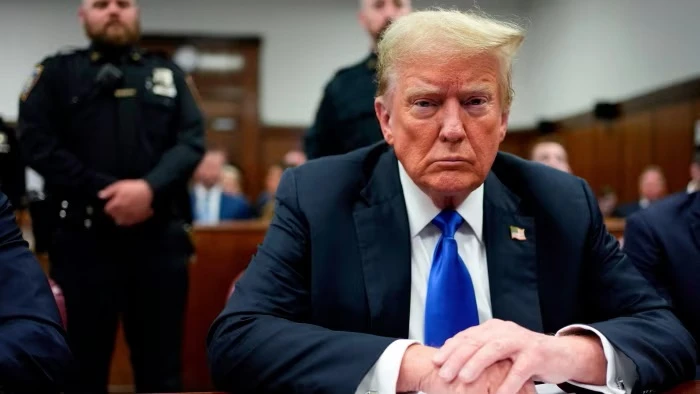
On November 18, 2024, U.S. President-elect Donald Trump reaffirmed his intent to carry out mass deportations of undocumented migrants.
Trump, set to assume office in January 2025, described this initiative as the "largest deportation program in American history." The announcement has sparked widespread discussions on its potential impact on communities, families, and law enforcement.
Trump’s Mass Deportation Plan
During his campaign, Trump consistently highlighted immigration control as a central pillar of his agenda. He vowed to prioritize the deportation of undocumented immigrants, particularly those with criminal records, by declaring a national emergency and deploying military resources.
His plans include restarting family detention centers and possibly expanding these facilities to non-border areas. Trump’s administration also intends to introduce strict state-level immigration enforcement laws, such as Arizona’s Proposition 314, which criminalizes illegal border crossings and enhances local law enforcement authority.
Concerns for Mixed-Status Families
An estimated 4 million mixed-status families—where some members are undocumented while others hold U.S. citizenship—face the risk of separation under these policies. Advocacy groups and families are preparing for potential scenarios where parents could be detained while children are left behind.
For instance, Lillie, a U.S. citizen married to an undocumented immigrant from Honduras, shared her plans to secure passports for her U.S.-born children and prepare a power of attorney in case her husband is deported. Such measures highlight the emotional and logistical strain these policies place on families.
Organizations like Coalición de Derechos Humanos in Arizona are holding workshops to help families create “emergency packets.” These packets contain vital documents such as school records, medical histories, and legal authorizations to ensure children’s safety in the event of parental deportation.
In Colorado, nonprofit leaders have reported a surge in inquiries from families concerned about potential separations. Yoli Casas, who runs a nonprofit in Denver, shared that families seek guidance on protecting their children and navigating possible deportation scenarios.
Broader Implications
Critics argue that Trump’s mass deportation initiative could have far-reaching consequences, including:
- Economic Disruption: Deportations could affect industries reliant on undocumented labor, such as agriculture and construction.
- Humanitarian Concerns: Families facing separation may endure severe psychological and emotional distress.
- Public Safety Challenges: Increased deportations may strain relations between immigrant communities and law enforcement, potentially leading to underreporting of crimes.
Trump’s Appointments and Legislative Backing
Trump’s administration is already positioning hardline immigration advocates in key roles. South Dakota Governor Kristi Noem is slated to lead the Department of Homeland Security, while Tom Homan, a former U.S. Immigration and Customs Enforcement (ICE) director, has been appointed as the “border czar.”
In states like Arizona, Proposition 314 and similar laws are expected to complement federal deportation efforts. However, these measures are subject to legal challenges and may face delays if similar laws are tied up in court.
Conclusion
As President-elect Trump prepares to implement his immigration agenda, mixed-status families and advocacy groups are bracing for the potential fallout.
While Trump emphasizes the need for stricter immigration enforcement, critics warn of the humanitarian, social, and economic consequences. The coming months will reveal how these policies unfold and their impact on millions of lives across the United States.

